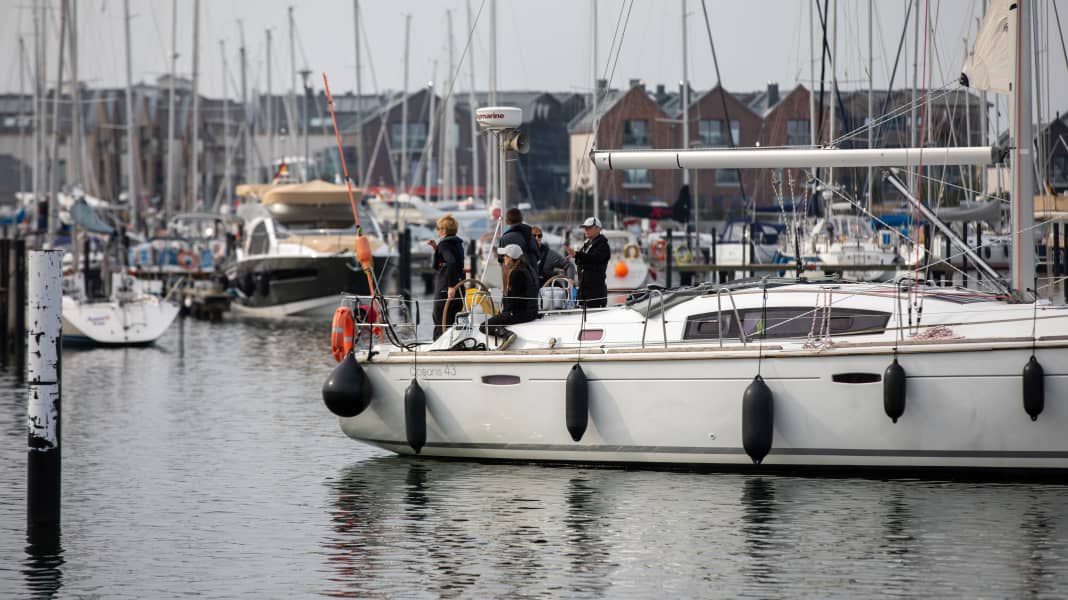
Be honest, who hasn't confused starboard and port in the heat of a mooring manoeuvre? This was the case for a sailing student who took part in a training cruise in Croatia in 2022. The trip was intended to prepare him for obtaining a recreational coaster licence.
No gross negligence if a student performs a manoeuvre incorrectly
Two days before the examination date, he was instructed by the sailing instructor to sail to a jetty. He steered the yacht onto a concrete pier because, contrary to the skipper's instructions, he did not sail to starboard. As a result of the collision, the boat sustained damage totalling almost 2,000 euros.
The yacht had been chartered locally by the organiser of the training cruise. The instructor therefore compensated the charter company for the damage, but then wanted to have the money reimbursed by the sailing student. After all, the student had not followed his instructions. However, the sailing student refused to pay. The instructor went to court.
He has now failed in the court of first instance with his claim. The Munich District Court ruled on 29 June that "the plaintiff has no claim for damages against the defendant due to the damage to the chartered sailing boat. There is no claim under Section 280 (1) BGB (in conjunction with the contract) due to a breach of duty by the defendant during the mooring manoeuvre" (case no. 191 C 14599/22).
For sailing students, the question of liability is to be treated in the same way as for motor vehicle driving students
The reasoning states that similar liability cases from the training practice of motor vehicle learner drivers could be used as a basis. According to the contract concluded, the instructor owed the student training to drive sailing boats. The defendant was therefore a "student". Therefore, the "care required in traffic" of this group of traffic must be taken into account, i.e. a sailing student at the level of training of the defendant.
The instructor could not prove that a sailing student of this level of training could and should have been expected to execute the mooring manoeuvre correctly, the court continued. The mere submission that "contrary to the instructions, he did not steer the rudder to starboard" did not enable the court to assume an objective breach of duty on the part of the defendant. This would have required an explanation of why the skipper had not or could not intervene.
Sailing instructors must be ready to intervene at any time
However, the skipper should always have been prepared to intervene himself - like a motor vehicle driving instructor - if the student was to carry out a manoeuvre. The plaintiff does not argue that the defendant showed a reaction or action that was completely far-fetched - and could not have been anticipated by his level of training - and which must have taken the skipper by surprise.
Rather, it is inherent in training that what has been learnt beforehand is not always implemented immediately and flawlessly by the student. This risk is borne by the trainer, not the student.
In addition, the court believes "that a privileged standard of liability applies in favour of the defendant: the interpretation of the contract shows that an implicit exclusion of liability for simple negligence was agreed. In this respect, the (generous) exclusion of liability in favour of the plaintiff must also apply reciprocally to the defendant as a pupil. This applies all the more because the defendant was not informed of the considerable liability risks. However, there is no question of gross negligence on the part of the defendant."
The judgement is not yet final as of 5 July 2023; the plaintiff can still appeal.
